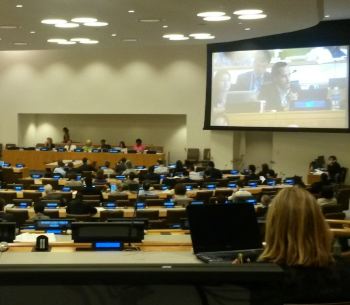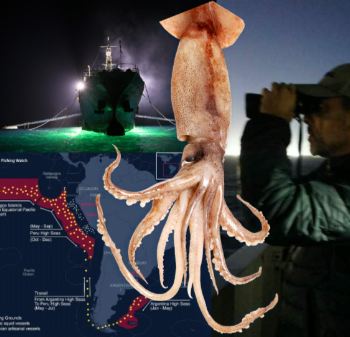|

Photo: Milko Schvartzman
Historical milestone. What the global agreement for the ocean is about
 ARGENTINA
ARGENTINA
Sunday, March 19, 2023, 18:00 (GMT + 9)
An agreement was reached so that the Altamar, the areas outside national jurisdictions, are from the enactment of a law, Protected Marine Areas. They cover 43% of the surface of the terrestrial globe
For the first time, it was possible to obtain an agreement necessary to protect the High Seas or areas beyond national jurisdiction. This region, which occupies 43% of the Earth's surface, will now have effective defense tools, such as the creation of Marine Protected Areas (MPAs).
Click image to enlarge
The ocean is essential for life on the planet, it regulates the climate, provides us with more than half of the oxygen we breathe, provides food and medicine for hundreds of millions of people and, by absorbing heat and carbon dioxide, prevents make the effects of climate change more serious.
Until today, marine exploitation activities in what is known as "the zone" were carried out practically without controls, what some call the "Law of the West", the sea being the victim of pollution, overfishing and the effects of climate change without anyone taking responsibility.
 Clearly the objective of the agreement is "to guarantee the conservation and sustainable use of marine biological diversity in areas beyond national jurisdiction." Something very important is that it will be binding, which means that your compliance will be mandatory once it enters into force. Clearly the objective of the agreement is "to guarantee the conservation and sustainable use of marine biological diversity in areas beyond national jurisdiction." Something very important is that it will be binding, which means that your compliance will be mandatory once it enters into force.
Historical milestone: the oceans will be a World Heritage Site
In turn, the fundamental principles on which it is based give an understanding of its scope: "the ocean is a World Heritage Site, the polluter pays, the precautionary principle, the equitable sharing of the benefits of marine genetic resources, the principle of ecosystem approach and that of the freedom of scientific investigation”.
The implementation of the agreement establishes a Conference of the Parties (COP) that will focus on four main aspects of conservation and responsible exploitation of marine biodiversity: the equitable use of genetic resources; the process and requirements for the creation of MPAs in the High Seas; the requirement to carry out Environmental Impact Studies, prior to exploitation; and the creation of capacities and transfer of marine technology, or how the most advanced states will collaborate with the rest to share technological advances and the financing of research.
Image: Milko Schvartzman
The adoption of the Agreement for the protection of almost half of the surface of our planet will have a positive impact on the entire biosphere, where living beings inhabit. Likewise, it presents unique opportunities to protect the South Atlantic and combat illegal, unreported and unregulated (IUU) fishing, taking into account that the ecosystem of the Argentine Sea suffers the consequences of what happens in what we call "mile 201". or external strip to the limit of the Exclusive Economic Zone.
There, hundreds of subsidized foreign fishing vessels operate without any type of environmental, labor, or navigation safety control, impacting not only the marine environment, but also the economy and employment in our country.
The Argentine Navy and Prefecture can currently act within the EEZ. If Argentina approves this UN initiative, it may be able to work jointly with the armed forces and control agencies of other countries.
The Argentine Foreign Ministry deserves recognition for its work, since it was a protagonist together with countries of the region, in the entire negotiation process, which lasted more than a decade.
From now on it will be the moment for the National Congress to take the lead and advance in its approval, so that the National Executive Power can ratify it and it has a prompt entry into force.
This advance in the protection of the largest geographical area on the planet is a clear sign that the great environmental challenges can be achieved. It's time to celebrate.
Author: Milko Schvartzman/Perfil (translated from original in Spanish)
Specialist in Marine Conservation of the Circle of Environmental Policies and participated in the negotiation process of the Agreement at the UN headquarters in New York and at the Rio+20 Summit.
Related News:
|



